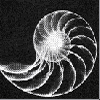Skip over navigation








Or search by topic
Number and algebra
Geometry and measure
Probability and statistics
Working mathematically
Advanced mathematics
For younger learners
STEM Teachers
stemNRICH is a unique collection of resources for 11-16 year-old students which will:
- stimulate, engage and inspire students
- provide rich contexts to help students and teachers integrate maths and the other SET subjects
- provide teachers with answers to 'Why do we need to know this?'
- help in preparing students for GCSE, A levels and university STEM courses
- enrich all STEM classrooms
- support non-specialists
- provide resources for STEM clubs
Key Elements of Good STEM Practice
Age 11 to 16
1: Introducing and developing STEM in the classroom.
Levels of STEM Engagement in the Classroom
Age 11 to 16
2: Introducing and developing STEM in the classroom.
Trying Out a STEM Activity
Age 11 to 18
3: Introducing and developing STEM in the classroom. Notes from subject workshops (maths, science and DT teachers) at the first STEM TI day, September 2011
Key Obstacles Hindering Cross-curricular Teaching
Age 11 to 16
4: Introducing and developing STEM in the classroom.
Practical Ways for Departments and Teachers to Work Together
Age 11 to 16
5: Introducing and developing STEM in the classroom.
Key Differences Between Maths and SET
Age 11 to 16
6: Introducing and developing STEM in the classroom.
Common Mathematical Content Important Throughout KS3 and 4
Age 11 to 16
7: Introducing and developing STEM in the classroom.
Preparing Students for STEM at University
Age 14 to 18
This articles describes how school teachers can help to prepare students for STEM courses at university

